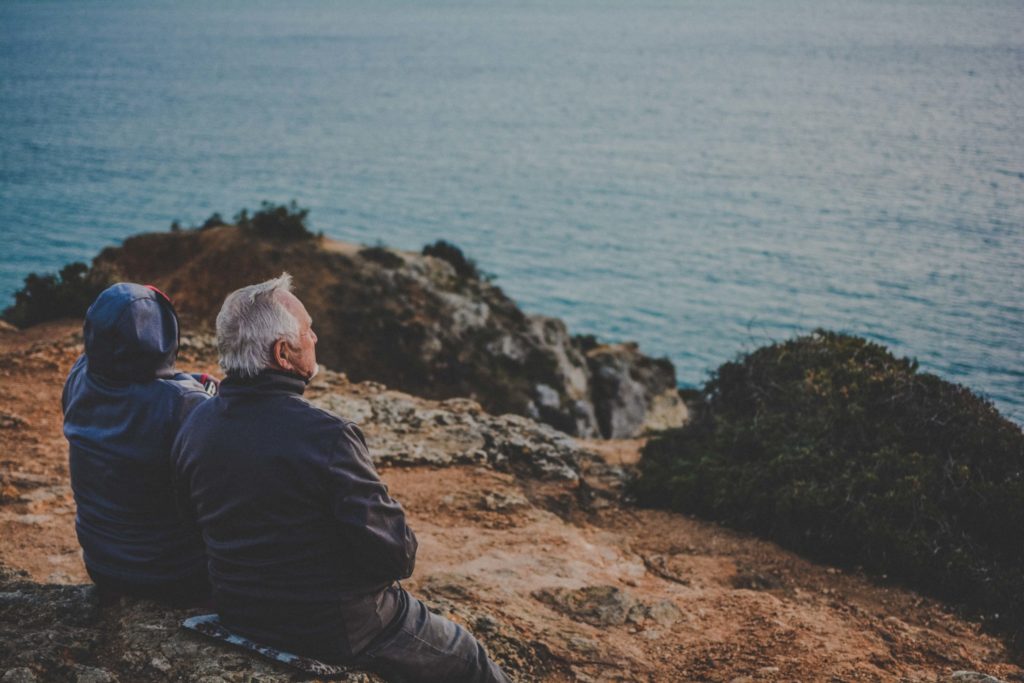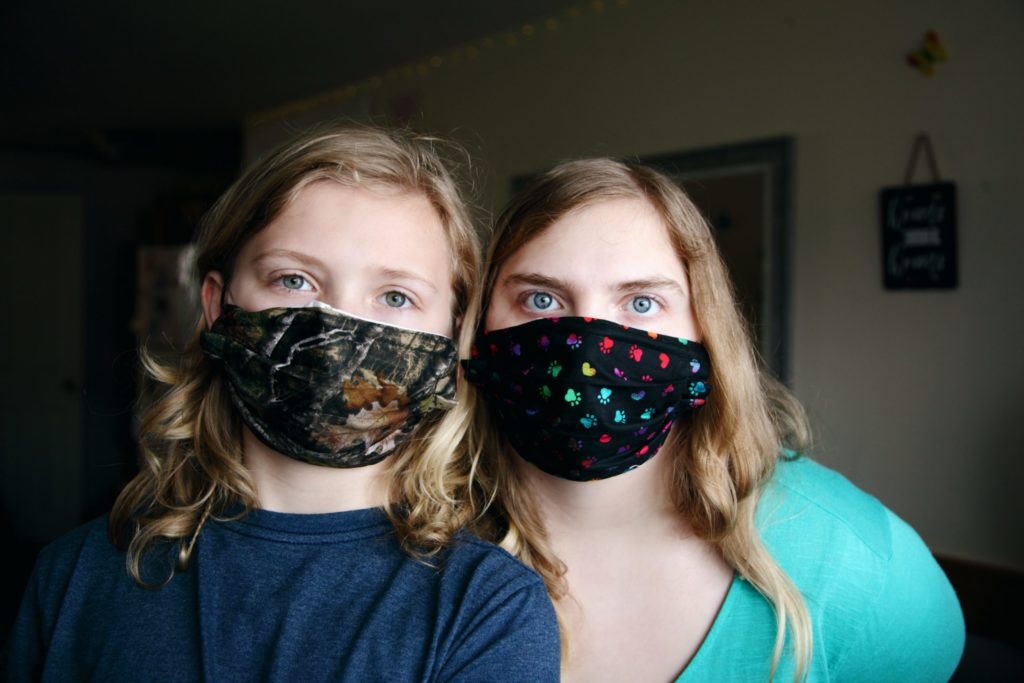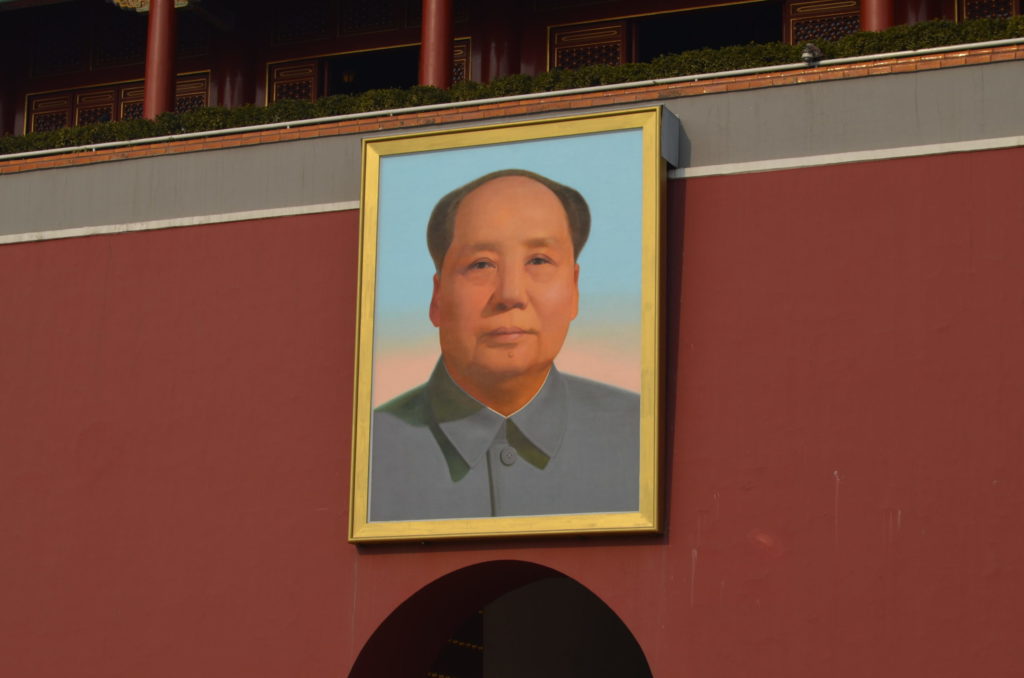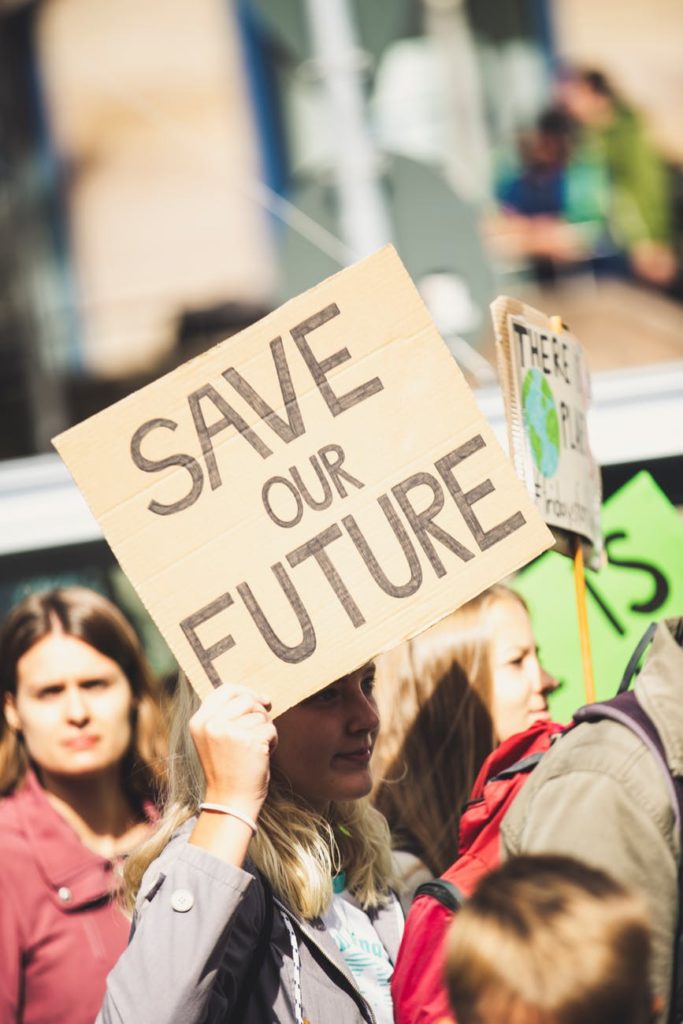


Independence Day and Renewed Vigor
Happy Independence Day! As America marks July 4th, it’s worth taking a few moments to pause in gratitude for the Declaration of Independence and its lasting importance for what America’s framers recognized about the human person, the source of human dignity, and the nature of human rights. Clarke Forsythe, Senior Counsel at Americans United for Life (and a colleague and friend) writes in National Review today on why the Declaration still matters for all Americans: Amid our national dialogue over race and justice, my family’s reading of the Declaration of Independence will be even more meaningful than usual this Fourth of July. At the core of the Declaration — the founding political document of America — is the principle that the consent of the governed is the foundation of the moral legitimacy of government. That principle follows from three preceding propositions in the preamble: “We hold these truths to be self-evident, that all men are created equal, that they are endowed by their Creator with certain unalienable Rights. … ” By appealing to self-evident truths, the American Founders relied on an extensive philosophical heritage which affirmed certain moral truths that flow logically from their premises once the terms of the proposition are understood. While a belief in moral truth is dismissed today for promoting intolerance, the foundation of tolerance is not moral skepticism, which fosters the will to power, but the humble recognition of transcendent truths that bind all of us, as human beings, equally. “When the architects of our republic wrote the magnificent words of the Constitution and the Declaration of Independence,” Martin Luther King, Jr. observed, “they were signing a promissory note to which every American was to fall heir.” We’re living through a turbulent season in American history. But we’ve worked through such times in our past by embracing the sort of wisdom upon which Clarke Forsythe reflects. If we’re all heirs to the Declaration and the Constitution, as Martin Luther King, Jr. believed, then that means that we share in a continuing responsibility to strive together in realizing the ambitious and evergreen challenge inherent in their vision of the human person — in making ideals real, together. If we look squarely at what Americans have long believed about the nature of human flourishing, we discover the guideposts that will see us through this season of discontent: We believe we are created equal. We believe that achieving and sustaining human flourishing requires a social order rooted in justice. And we believe that justice requires equality not only in principle but also in the experiences of our everyday lives. While we all struggle at times to remember that we are all members of one human family. Independence Day can be a special occasion to look back proudly at what we have achieved together even as we look ahead and with renewed vigor to the challenges of tomorrow.

Why Fear Masks?
A friend asked for my thoughts about a new performance of Monteverdi’s “Beatus vir” (1640) by the Prague “early music” group Collegium 1704. It’s disturbing to see the combination of beautiful music, beautiful setting, beautifully produced video, even the instruments are beautiful (the interestingly shaped bows, for example, true to the historical period) — and then the COVID masks the performers all wear. The Latin text is Psalm 112, “Praise ye the Lord. Blessed is the man that feareth the Lord.” If I ran Collegium 1704, I suppose I would do just as they did. If you’re an artist, you want people to say, “Did you see…? What do you think of…?” In that, they succeeded. Yet the images are troubling. It’s hard to picture myself ever looking at masks and not feeling uneasy. I would put one on to make someone else feel comfortable. No doubt, I will go along and wear a mask before long, when I have to. Just so that there is no misunderstanding, I am NOT saying masks aren’t advisable. They likely are in many contexts — ever-shifting “expert” opinions notwithstanding. But I’ve wondered about my response. If you read the comments under the video, that’s not how many people feel. One viewer asks where he can go to get such cool masks. Whether in the Bible or in horror literature, masks are associated with shame and terror. “Unclean! Unclean!” as the masked leper in Leviticus is instructed to call out as he passes. See the Robert W. Chambers short story “The Mask,” invoking the fictional play The King in Yellow, said to induce madness and ruin in those who read it. Running in the park near where we live, I see people putting on their masks as I go by. They look fearful of me, as if they believe I must be sick, although outdoor transmission is very unlikely in any case. A mask erases individuality. Stampeding humans into a faceless animal mass, with all the same attitudes, is a mark of our time. Much of the coronavirus response has involved an intensifying drive to dehumanize us (“for our own good”!), lock us down like a dog in a crate. Dogs are said to find limited crating bearable, even comforting. People are different — which could be a three-word summary of the Humanize blog and its mission. The terms we now use in routine conversation (“herd immunity”) are telling. I think there’s more to it, though. When my kids are too casual and go barefoot and sit on the floor or walk around wearing a blanket, I ask them not to do that because it’s the stereotypical behavior of a beggar. It seems to show a lack of gratitude to God that we are not destitute. (Not yet. The never-ending lockdown may fix that.) In the same way, I wonder if part of my own primal response to masks comes from the sense that the human face reflects God’s image. To hide your face is as if to deny the divine image, which would be the ultimate horror. Of course, many of our most enlightened fellow citizens are eager to do just that.

Dershowitz Wrong: Government Can’t Compel You to Take COVID-19 Vaccine

Nevada Governor Partially Bars Use of Malaria Drug for Coronavirus
Some not bright people tragically poison themselves with a fish-tank cleaner because an ingredient in the compound is similar to those in the anti-malaria drugs that anecdotally have helped people deathly ill with coronavirus. Then, Nevada governor Steve Sisolak signs an emergency order preventing the medications’ use treating the virus in Nevada, which certainly seems extreme. What’s going on? Predictably, the AP story blames Trump: Nevada’s governor has signed an emergency order barring the use of anti-malaria drugs for someone who has the coronavirus. Democratic Gov. Steve Sisolak’s order Tuesday restricting chloroquine and hydroxychloroquine comes after President Donald Trump touted the medication as a treatment for the virus. Trump last week falsely stated that the Food and Drug Administration had just approved the use of chloroquine to treat patients infected with coronavirus. After the FDA’s chief said the drug still needs to be tested for that use, Trump overstated the drug’s potential benefits in containing the virus. Sisolak said in a statement that there’s no consensus among experts or Nevada doctors that the drugs can treat people with COVID-19 . . . The governor’s rule comes a day after a Phoenix-area man died and his wife was in critical condition from taking an additive used to clean fish tanks known as chloroquine phosphate, similar to the drug used to treat malaria. Where to start? First, the medicine has to be prescribed by a doctor. You can’t just go out and buy it. Second, Trump never said the FDA had approved the drug for this use. He said he was ordering the FDA to fast-track the testing for this use since the drug had already gone through the approval process for other uses. That is absolutely true, and that included safety testing and an understanding of the potential side effects. Prescribing hydroxychloroquine for coronavirus before that investigation is complete would be what is known as an “off-label” use — which is legal. Indeed, Trump specifically said it was for “compassionate use,” that is, to save someone who would otherwise be likely to die. There have been cases in France, for example, where it seems to have helped. Dr. Fauci did not say he opposed using the drug for compassionate prescribing, but that (properly) he couldn’t say it would work because it hadn’t been tested. New York governor Andrew Cuomo has also supported trying the drug because of its positive anecdotal potential, to the point that the state obtained 70,000 doses and is about to start clinical use trials in New York. A more accurate story about the governor’s order says it was done at the request of the Nevada State Board of Pharmacy as a preventative against hoarding, to make sure that patients who need it for FDA-approved purposes don’t run out. There are ways to do that. For example, the governor’s order prevented prescriptions for more than 30 days for its other uses, which is fine. The new regulation contains an exception for inpatient prescribing. The medication may have saved at least one patient already in the United States. From a New York Post story: [Rio] Giardinieri said he contacted an infectious disease doctor about the drug [when his other doctors told him there was nothing they could do]. “He gave me all the reasons why I would probably not want to try it because there are no trials, there’s no testing, it was not something that was approved,” said Giardinieri. “And I said, ‘Look, I don’t know if I’m going to make it until the morning,’ because at that point I really thought I was coming to the end because I couldn’t breathe anymore,” Giardinieri continued. “He agreed and authorized the use of it and 30 minutes later the nurse gave it to me.” After about an hour after taking the pills, Giardinieri said, it felt like his heart was beating out of his chest and, about two hours later, he had another episode where he couldn’t breathe. He says he was given Benadryl and some other drugs and that when he woke up around 4:45 a.m., it was “like nothing ever happened.”33 He’s since had no fever or pain and can breathe again. Giardinieri said doctors believe the episodes he experienced were not a reaction to the medicine but his body fighting off the virus . . . “To me, there was no doubt in mind that I wouldn’t make it until morning,” said Giardinieri. “So to me, the drug saved my life.” This situation needed a scalpel, not a sledgehammer. Update: The Nevada governor’s office has now contacted me to advise that the regulation does contain an exception for inpatient prescribing. The post has been corrected.

Biden’s Coronavirus Adviser Wants to Die at 75

Businesses Must Not Cooperate with the ‘Fourth Reich’ of Communist China
Human exceptionalism imposes duties as well as rights. A crucial obligation of each and every one of us is to treat each of our human brothers and sisters as equals. Hence, slavery is evil and the antithesis of human exceptionalism because it treats equals as unequal and human beings as objects to be exploited for the benefit of those with the power to control the enslaved. Ditto, forced labor camps filled with people imprisoned due to political or religious persecution — as occurs with appalling efficiency in the “Fourth Reich” that is Communist China. Internationally prominent companies are being charged in the media with benefiting from forced labor in China. From the AFP story: China is transferring tens of thousands of Uighur detainees out of internment camps and into factories that supply some of the world’s leading brands, an Australian think tank said Monday. Top global brands such as Apple, BMW and Sony have been accused of getting supplies from factories using the forced labour, an explosive allegation that could reverberate in boardrooms across the world. The Australian Strategic Policy Institute said the Chinese government has transferred 80,000 or more Uighurs out of camps in Xinjiang and into factories across the country. “Uighurs are working in factories that are in the supply chains of at least 83 well-known global brands in the technology, clothing and automotive sectors,” the think tank said. Attention must be paid to determine whether this is true. Discovery Institute’s Center on Human Exceptionalism calls on the relevant Congressional committees to call public hearings at which the CEOs and other executives of the accused companies should be called upon to explain their business’s cooperation — if any — in this tyranny. We also urge President Trump to stand more forcefully on behalf of human rights in China than he has heretofore. Profits are important, but it is not the only thing. Free markets require free labor. Forced work and religious persecution have no place in the 21st century.

Elephants Are Awesome, but…
Animal rights activists continue to try to “break the species barrier” between human beings and animals, such as with this failed lawsuit to have an elephant declared a person. The bad news is that the judge wanted to rule in favor of “animal personhood,” but couldn’t because of precedent. But she really wanted to, as she wrote in her decision: This court is extremely sympathetic to Happy’s plight and the NhRP’s mission on her behalf. It recognizes that Happy is an extraordinary animal with complex cognitive abilities, an intelligent being with advanced analytical abilities akin to human beings… The Court agrees that Happy is more than just a legal thing, or property. She is an intelligent, autonomous who [note the “who”] should be treated with respect and dignity, and may be entitled to liberty. As I write at National Review, “we don’t treat animals as mere things or as being akin to inanimate objects.” We created animal welfare laws, I write, “precisely because we understand that animals are sentient, have emotions, and can feel pain—meaning, as a matter of human exceptionalism, we have the duty to treat them humanely based on their capacities and levels of sentience.” Yes, we are animals in the biological sense—as are flies, clams, and jellyfish. But we are separate and distinct in a moral sense. It is crucial that we keep this clear moral distinction always in mind. Human exceptionalism imposes the solemn duty upon us to treat animals humanely. That’s why animal welfare is important. But animal rights—which is an ideology that suggests moral equality between us and them? Never. I explain why our law is more than capable of protecting animal welfare.

Human Rights Require Knowledge of the Human Heart
I’m excited to join the Discovery Institute’s Center on Human Exceptionalism. Let me share my approach to the issues of human dignity, liberty, and equality and the moral duties that the Center exists to consider and advance. I believe that when it comes to issues of human life we’re generally engaging conflicts that are neither unresolvable nor destined for stalemate. We’re debating issues that matter. We can lose sight of this due to the tendency to throw our hands into the air over the seemingly complex nature of many human life issues, content to “agree to disagree” because “it’s complicated.” For those determined to advance human dignity, liberty, and equality, settling for this false peace is, in fact, a surrender to (at best) a materialist philosophy that prizes autonomy over solidarity, or (at worst) a nihilist relativism that proposes that ultimate reality and truth are unknowable and therefore worthless. We already see the poisoned fruits of accepting that false peace in the degradation of human rights. Human rights were once a shield for the protection of those most at risk to the whims of those with greater power, but as we lose our sense of human beings as possessors of inherent dignity and worth, we also lose a firm basis for universal human rights. As if experiencing a collective dementia, we look upon the face of the human person without recognizing the priceless good we see. And in our forgetfulness we lose our ethical bearings, too often falling for utopian promises for a future that never arrives. When we survey the field, we observe this annihilation across the spectrum of human life: at the earliest and most physically vulnerable period when we most require hospitality and love, in the form of abortion; at the latest and most culturally vulnerable period when we most require solidarity and companionship, in the form of euthanasia and suicide; throughout adult life when we require encounter and friendship, through a “throwaway” culture of indifference; and across the spectrum of bioethical issues from eugenics to human trafficking, from attacks on patient and physician conscience rights to misanthropic environmentalism, from ethically indifferent forms of genetic engineering to stem cell research to cloning, and on it goes. What are we to make of the claims of human rights, amidst all the raw human willfulness and power imbalances that so greatly warp our ability to recognize one another as equals? “To argue with a man who has renounced the use and authority of reason, and whose philosophy consists in holding humanity in contempt,” writes Thomas Paine, “is like administering medicine to the dead…” We’re all that man at certain points—that person in any given moment who is likelier to hold humanity in contempt than to properly recognize that to hang humanity is to hang oneself. We’re flirting with that philosophically in many ways—grimly illustrated by the fact that American prosperity has never been greater in absolute terms, yet neither has our suicide rate—but the evidence of our daily lives, our daily experience, confirms that we want as much of the good life as we can get. At the risk of sometimes administering “medicine to the dead,” I think that what makes Discovery Institute’s Center on Human Exceptionalism so valuable is a fundamental concern with reintroducing—or, at least, re-emphasizing—those things which our ancestors knew—or, at least, grasped for—but which some of us rejected and others forgot. As a consequence, we deprive ourselves of a valuable inheritance. A recovery is possible, and it starts with this: the truth is knowable, ethics and morals of human life are inherent to all law that legitimately directs human action, and the good is achievable in our culture and in our lives. If we refuse these realities, then our pursuit of dialogue is a fool’s errand. There is no purpose to dialogue over issues that have no possibility of resolve. All good law has, at its heart, a moral core, and good law can never be neutral with respect to the aims it seeks to encourage or proscribe. Human reason points us to the moral content at the heart of the sort of good law that makes a healthy culture possible. “Laws without morals,” observed Ben Franklin, “are useless.” Franklin was as much summing up classical knowledge as he was reintroducing it to new generations, and the University of Pennsylvania adopted it as its motto for the same reason: “Leges sine moribus vanae.” The law is a teacher. Not every choice (and relatively few choices when it comes to bioethical issues, it turns out) can be made in a life-affirming way without a teleologically informed conscience or the encouragement of a law and policy regime that is concerned with a knowable set of moral and ethical goods. What we most immediately need to recover is knowledge, first of our own hearts. I look forward to contributing to this important cause.

Humanize
We have published many pieces over the years at Discovery Institute’s Center on Human Exceptionalism through the popular media advocating for human exceptionalism and defending the importance of humanity. That effort will not only continue, but hopefully, accelerate in 2020 and beyond. However, as I look to the future and the growing threats to human dignity, liberty, and equality which we founded the Center on Human Exceptionalism to address, I think it’s important to start conducting a conversation in a place of our own where we can consider the threats and opportunities to human dignity and human rights in culture, law, and policy in a more holistic way. Enter Humanize from Discovery Institute’s Center on Human Exceptionalism. We hope to welcome a host of contributors over time into a conversation of the many issues related to the importance of human life and our unique obligations to each other, our posterity, to animal life, and to the environment. America is living with the ghosts of the 1960s, the ambition of that time as much as its hubris. In equal measure, those qualities shape our ethically and morally haphazard approach to human dignity and human rights, and particularly bioethical issues that have the potential to harm or damage our liberty and equality with one another as human beings. Humanize will offer news, opinion, and analysis to spark and participate in conversations about all of these issues and more, in the spirit of a time when we believed that we could achieve success in every field with ambition tempered by honor—in short, in a way that both advances science and society and promotes human dignity, liberty, and equality. As long as we remain fractured across philosophical and intellectual fault lines, issues of human life generally and bioethical issues specifically can only grow more vexing. We’re establishing Humanize with the hope that we can be a home for spirited and robust conversations that address the many ethical or moral issues that currently denigrate human life, as we promote a human-centered wholeness that is the only true hope for a better future. Humanize is as much about recognizing new frontiers in science, medicine, and biotechnology, as it is about recognizing that there are perennial frontiers in the human heart that must always be addressed in our conscience as much as our law and policy. Aleksandr Solzhenitsyn recognized these perennial frontiers: “If only there were evil people somewhere insidiously committing evil deeds, and it were necessary only to separate them from the rest of us and destroy them. But the line dividing good and evil cuts through the heart of every human being. And who is willing to destroy a piece of his own heart?” The work we thought we were finishing with the Universal Declaration of Human Rights has turned out simply to be a starting point for new frontiers in a timeless conversation on the exceptional importance of being human. Welcome to Humanize.